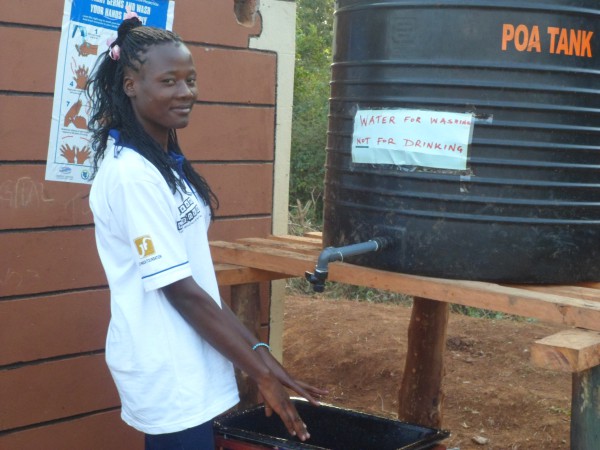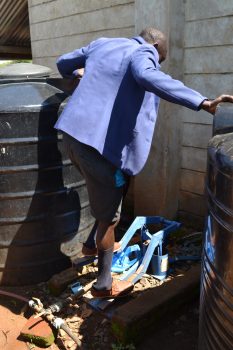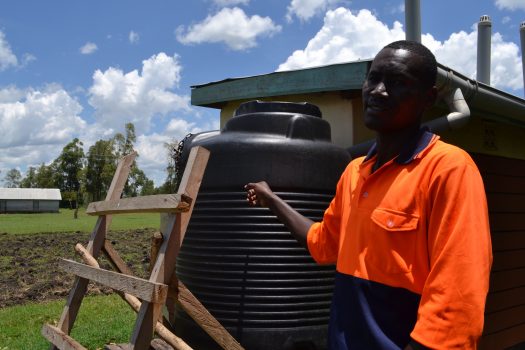Tag International Development
With the generous support of the Jochnick Foundation we are working in partnership with Tag International Development to introduce innovative approaches to leverage water to improve the education, health and life chances for girls in the Ndhiwa.
The project benefits:
- 1,500 children and teaching staff in three primary schools
- 2,000 families of the school children
- 5,500 children, staff and families in 12 surrounding schools
The overall objective is to ensure a physically and emotionally healthy and supportive learning environment for children, along with improved economic stability for families so that children, especially girls, can complete primary education, continue through secondary education and be able to fulfil their life’s potential.
Activities:
- An innovative water harvesting systems has been established in three schools
- Introduction of innovative methodologies for the detection, mitigation and treatment of gender-based violence, including water and play therapies.
- A model agriculture farm has been established to demonstrate agricultural innovation to the neighbouring communities.
- A revolving fund loan mechanism to families with school age girls will provide access to affordable agricultural inputs.
- A poultry farm has been established, which will later be replicated in other communities.
- A school feeding program has been launched in three schools to ensure the most vulnerable children are given lunch.
- Each school will soon be starting their own farm, which will teach the children about farming whilst generating income to allow poorer children to attend school and provide them with school uniforms and books.


Three focus areas
Educational
Providing clean water and sanitation facilities to enable physically supportive learning environment and improving food access in the schools.
Gender
Providing the community with tools to reduce Gender Based Violence and empower victims.
Economic
Increasing the income of farmers in the community to reduce the pressure on the girls to leave school early.
The vital need for this project
Few girls successfully complete primary education and continue through secondary school in rural areas of Kenya. Why? Hunger and poor nutrition stymie children’s growth and cognitive development, but girls face additional stressful and sometimes traumatic challenges:
Lack of clean water and basic sanitation in schools keeps many girls away for a week each month during menstruation. They fall behind and lose motivation to continue.
Girls are often burdened with domestic and farm chores (including the difficult and time-consuming task of fetching water), a situation exacerbated during flood/drought extremes when food and/or water become scarce.
Some girls are forced to be caregivers in families struggling for subsistence and families in which a parent has died from HIV/AIDs or other causes.
Girls who drop out of or infrequently attend school not only miss out on professional and vocational opportunities, they are also vulnerable to early marriage (forced or by immature choice), teenage pregnancy, sexual abuse and other gender based violence.
